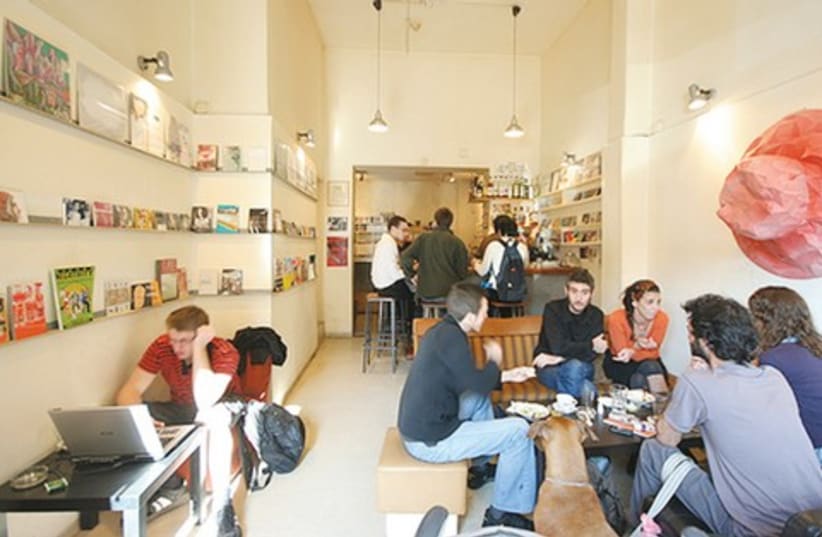Africa is credited with producing the first percussion and vocal sounds that we eventually began to call music, and the Kabako septet, which is playing in the latest installment of the Vocals & Beats world music series, feeds straight off pure African vibes.
Over the years, the group has stretched its musical spread into other domains; today, it takes in colorings from funk, jazz, rock, rap and reggae. But above all, Kabako is about energy and connecting with the roots of the music – as indicated by the group’s name, which means “inspiration” in the Jula dialect (Jula is a trade language of western Burkina Faso, and is spoken by around one million of the country’s approximately 15 million people.)
The nucleus of Kabako comprises Shahar Kachka and Yoni Ohana, who play an assortment of West African percussion and string instruments that mostly originate from Burkina Faso. The two spent extended periods there, learning to play and build different instruments from local masters and soaking up as much of the local culture as possible. Today they run an Israeli-based manufacturing company called Calabasi Instruments.
Kachka plays an African harp called a ngoni and sings, while Ohana plays a wooden African xylophone called a bellaphone, as well as a djembe drum. The rest of the Kabako gang includes Moran Bar-On on bass guitar, Chen Meir on congas and assorted other percussion instruments, and Michael Avigail on drums. The lineup for the Vocals & Beats show also features guest artists singer Keren Malka and woodwind instrument player Gilad Ronen.
Kachka first traveled to Burkina Faso shortly after he finished the army, in 2001. He had become enamored of the rhythms and melodies of West Africa and was not set on any particular destination in that part of the continent; he just wanted to expand his musical horizons and get a better handle on West African music.
“I had a friend who told me he was going to Burkina, so I went with him,” he says simply. It was love at first sight and sound. Kachka spent six months there before returning to Israel completely immersed in the discipline.
He met Ohana on his way back to Israel. “I was in the airport to catch my flight back home when Yoni jumped on me,” Kachka recalls. “Yoni is a French Jew, and he was excited to see an Israeli at the airport there.”
The two chatted and quickly discovered they shared a love of the local music, and they made plans to meet up again. “Yoni said he was going to come to Israel, and we spent time together and jammed,” says Kachka. “We could see we came from a similar musical place. It was great fun.” Ohana, it turned out, had a richer Burkina pedigree.
“He went there first when he was 17... and had been there about 10 times already” when the two met, says Kachka. Six years later, the pair returned to West Africa together.
“We rented a big house and each had four teachers, for the different instruments like djembe and ngoni,” Kachka recalls. They made good progress, and Kabako had its debut gig at the 2009 Red Sea Jazz Festival in Eilat. Since then, the band has appeared at the Israel Festival and at venues up and down the country. Kachka notes that his and Ohana’s idea was never just to replicate the sounds and rhythms they imbibed in Burkina Faso.
“We mix in other influences in our music,” he explains. “Yoni and I and the other members of the band, who played on our first CD, come from different backgrounds like jazz, reggae, Latin and music from this part of the world. I think all that makes our music richer and more interesting.” A second release that will, no doubt, stretch the genre mix even further is in the works. Some of the new material will find its way into the band’s upcoming Vocals & Beats gigs.
Kabako will perform at Einan Hall in Modi’in on January 24 at 8:30 p.m., at the Tel Aviv Museum on January 26 at 9 p.m., and at Beit Abba Khoushy in Haifa on January 28 at 9 p.m. For tickets: 1-700-500-039 or www.cartisinfo@co.il.
